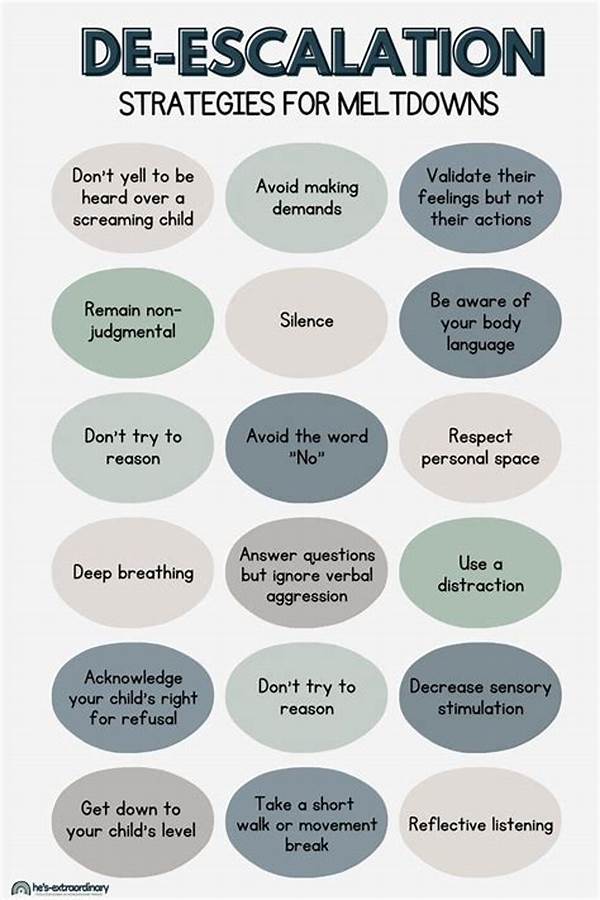In the high-pressure world we live in today, everyone is looking for effective ways to manage stress and avoid escalating meltdowns. Here is where humor steps in as a powerful tool to diffuse tensions gracefully. Imagine a stressful situation at work or home where emotions are about to hit the peak. Instead of letting the pressure build up, injecting a dash of humor could be the secret remedy you’ve been searching for. Turning a tense atmosphere into one of laughter not only breaks the ice but also facilitates communication, making everyone feel more relaxed and approachable.
Read More : Comedian’s Genius Hack To Stop Toddler Tantrums In Their Tracks
Humor serves as a mental break, transforming serious situations into manageable conversations. It acts as a diffuser, helping individuals regain their footing while fostering an environment where creative solutions can emerge. The health benefits of humor are well-documented, with studies showing how laughter can reduce stress hormones, boost immunity, and increase overall well-being. When we tap into humor to diffuse escalating meltdowns, we invite a positive shift in energy, one that is essential for maintaining peace and productivity.
Moreover, using humor is not just about cracking jokes; it’s about reading the room and being attuned to what will make people feel at ease. It requires a certain level of empathy and emotional intelligence, qualities that are invaluable in both personal and professional settings. Knowing when and how to use humor effectively can turn potential conflicts into harmonious interactions. Let’s delve deeper into how integrating humor into your conflict management strategies can be your unique selling point, capturing attention and sustaining interest in intense situations.
The Power of Humor in Conflict Resolution
Using humor to diffuse escalating meltdowns is not about avoiding emotions but channeling them in a healthier direction. When tensions rise, humor invites a pause, allowing all parties involved to take a step back and assess the situation from a different perspective. Humor transcends barriers, making even the most complex dilemmas less daunting.
—
Discussion: Navigating Tensions with Humor
Tensions can arise in any setting, whether it’s within a family, workplace, or social gathering. The art of using humor effectively is about knowing how to approach these situations without disregarding the underlying issues. For many, the concept of using humor in heated discussions may seem counterintuitive. However, research shows that laughter can significantly lower stress levels and improve interpersonal relations.
Humor as an Effective Communication Tool
Humor serves as a fantastic communication tool, breaking down barriers and establishing connections. By lightening the mood, humor facilitates open dialogue, paving the way for more effective problem-solving. When people are in a relaxed mindset, they are more likely to engage in meaningful conversations that lead to mutual understanding. Humor, when applied appropriately, can redirect negative emotions and foster a sense of camaraderie among conflicting parties.
Practical Applications of Humor
There are various strategies to tap into humor to diffuse escalating meltdowns. Whether it’s a light-hearted comment, a funny story, or an amusing observation, the goal remains the same: to disarm tension and nurture a positive atmosphere. Humor encourages adaptability, as it requires one to think quickly and creatively in the face of conflict. By using humor to address disagreements, you not only resolve issues but also strengthen relationships and build trust.
In conclusion, integrating humor into conflict management practices offers a refreshing approach to dealing with challenging situations. It’s an art that, when mastered, becomes an invaluable tool in your emotional toolkit, helping you glide through difficulties with grace and laughter.
—
Practical Steps to Harness Humor
Remember, the key is practice and observation, refining your approach over time to become a master at using humor to navigate the often turbulent waters of conflict.
—
Humor is more than just a social tool; it’s deeply rooted in psychological and physiological processes that offer mental, emotional, and physical benefits. Delving into scientific research reveals the profound impact that humor has on our well-being. Studies illustrate how laughter activates numerous brain regions, releasing endorphins and creating a sense of happiness and contentment. Physiologically, laughter enhances oxygen intake, stimulating the heart and muscles, ultimately leading to a healthier body.
Insights from Research
A closer look at psychological studies reveals that individuals who regularly engage in humor tend to have lower stress levels and enhanced clarity of thought. This mind-body connection underscores the significance of laughter as a natural stress-reliever, elegant in its simplicity yet powerful in its effects. When we tap into humor to diffuse escalating meltdowns, we’re not just alleviating the immediate tension; we’re promoting a culture of wellness and resilience.
Transforming Interactions through Laughter
The implications of humor stretch beyond individual benefits, influencing group dynamics and organizational culture. Humor fosters teamwork, creativity, and adaptability, qualities essential for thriving in today’s rapidly evolving world. In essence, humor functions as a catalyst, transforming interactions and creating environments where people feel empowered and motivated.
Incorporating humor into various aspects of life, be it personal or professional, is transformative not just for the individual but for entire communities. By making humor a staple in our communication toolkit, we nurture an atmosphere of inclusivity and joy, setting the stage for constructive and harmonious interactions.
—
Key Points to Remember about Humor Strategy
By embracing these strategies, you enrich both your personal and professional interactions, paving the way for a life imbued with positivity and laughter.
